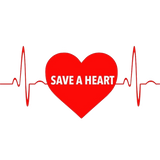Heart Attack Symptoms: How to Listen to Your Body and Take Action

If you notice any unusual symptoms, such as chest pain or shortness of breath, it is important to listen to your body and take appropriate action. These symptoms may be indicative of a heart attack or other heart-related condition, and it is important to seek medical attention as soon as possible.
One key to listening to your body and responding to heart symptoms is to be aware of the signs and symptoms of a heart attack. These may include chest pain or discomfort, shortness of breath, nausea, sweating, and pain or discomfort in the neck, jaw, arms, or back. If you experience any of these symptoms, it is important to stop what you are doing and seek medical attention immediately.
Another important step in responding to heart symptoms is to call for emergency medical help, such as 911 or your local emergency number. Emergency medical personnel are trained to respond to heart attack symptoms and can provide life-saving care on the way to the hospital.
In addition to calling for emergency medical help, there are also several steps you can take to help yourself or someone else who is experiencing heart attack symptoms. These may include:
- Chewing and swallowing an aspirin. Aspirin can help to reduce blood clotting and may help to prevent further damage to the heart.
- Taking nitroglycerin, if it has been prescribed by a doctor. Nitroglycerin can help to open up the blood vessels and improve blood flow to the heart.
- Resting and trying to stay calm. Anxiety and stress can increase the heart rate and blood pressure, so it is important to try to relax and take deep breaths.
Overall, if you notice any symptoms that may be indicative of a heart attack, it is important to listen to your body and take appropriate action. This may include calling for emergency medical help, taking medication if it is safe to do so, and trying to stay calm. By following these steps, you can help to reduce the risk of further damage to the heart and improve your chances of a full recovery.


